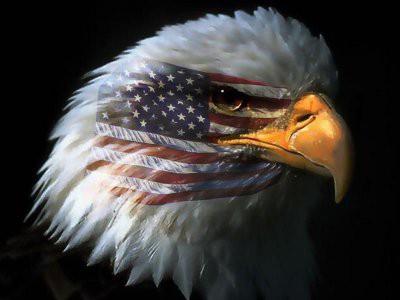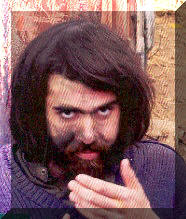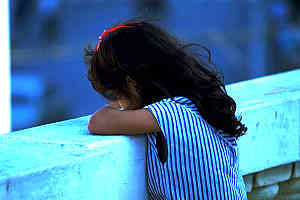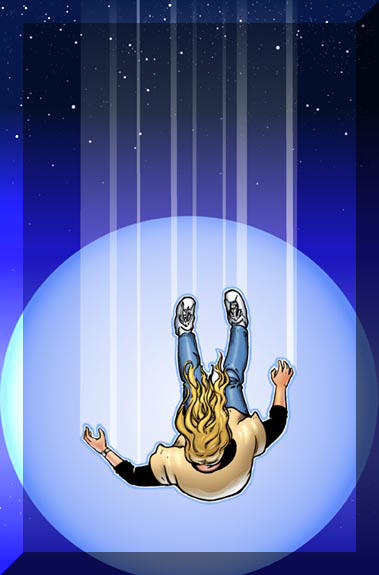|
 VigilanceVoice VigilanceVoice

Thursday, January 3, 2002—Ground
Zero Plus 114
THE ART OF TEACHING CHILDREN ANTI-TERRORISM MANAGEMENT
by
Cliff McKenzie
Editor, New York City Combat Correspondent News
One of my favorite programs on television
is Law & Order. Last night, the show was about a young boy who walked
into his high-school cafeteria and began shooting his classmates, killing
four and severely wounding six others.
He was sixteen years old. The show’s major moral, ethical and
social question was whether he should be tried as an adult, or treated as
a
confused, problem child.
Fortunately, Law & Order is a program of balance—it shows both
sides of the coin—and creates equal tension for the pros and cons on most
issues. This particular one was not only disturbing, but timely.
In our current “real history” we face the issue of whether to
seek the death penalty against John Walker, the American turncoat who
fought with the Taliban against American forces.  Some claim he was a confused teenager who was driven by social pressures
to seek recognition through violence, and contend he is not wholly, or
maturely responsible for his actions. While his chronological age
permits him to be tried as an adult, his emotional immaturity will
certainly be included in his defense.
Some claim he was a confused teenager who was driven by social pressures
to seek recognition through violence, and contend he is not wholly, or
maturely responsible for his actions. While his chronological age
permits him to be tried as an adult, his emotional immaturity will
certainly be included in his defense.
Teenage
violence in America is growing. Over the past few years
Americans have watched vicious assaults on other children by teens who
were disenfranchised from society. Their defense, as was the case of
the Columbine slaughter in Colorado, is being “picked on,” or “tormented”
by the jocks and other “bullies” of the school who demeaned them,
humiliated them, tortured them emotionally and physically. In a
twisted, perverse way, “self defense” is construed as a defense to justify
the horrible actions the children take.
Recognition is another factor. The Andy Warhol “fifteen
minutes of fame,” is another syndrome alleged to drive the marginalized
student or child to acts of violence. In this scenario, the child
receives national recognition for perpetrating the acts of violence. By
knowing the television and news media will splash their pictures on the
front page of newspapers and broadcast it into the living rooms of
millions of homes, they seek some satisfaction from the notoriety—some
epithet to their “meaningless” lives that they are “somebody.”
I grew up with a similar feeling. A skinny kid with pimples,
and parents I felt separated from because of their thirst for booze and
violence, I distanced myself from them. I felt alienated, disenfranchised
as so many teenagers are from their parents. The idea of telling my
parents how I really felt, or who I really was, was as foreign to me as
expecting to receive a knock on the door and be handed a check for a
million dollars from the “Millionaire.” (Back in those days, prior to
Regis Philbin, a television show each week showed what happened to people
who were given a million dollars. They usually screwed up their lives
over the money.)
My life was spent trying to prove I was “somebody special.”
Deep down, despite the accolades I received for being “strong and
powerful” I felt “weak and ugly” inside. My outsides and my insides were
two different stories.

As a teenager, I remember holding a mirror alongside my face
and glancing out of the corner of my eye into the bathroom mirror to
measure how long and ugly my nose was. The more I studied it, the longer
and uglier it became.
I compared families all the time. My family was full of
anger and violence, and a constant threat of brutality against my mother
existed when my step-father drank too much and would strike her, or lash
out against with cruel words. Often, I threw myself between them to try
and block his anger and became the punching bag.
By psychological standards, I should have been both a “wife
beater,” and a candidate for taking a gun into my fellow students’
cafeteria and blowing away all the people I envied, all those who “had
what I wanted.”
However, I didn’t.
Instead, I vowed to myself to never strike my wife, or use
brutality against anyone smaller than I, or weaker. I went the other
direction. I used the ugliness of my childhood to frame a life in which
I dedicated myself to my children, and their feelings, and their dreams,
and their ambitions.
I became the father and mother I didn’t have. And I married a
woman who felt the same about raising children as I did, so that we became
a unified team in deploying the “vigilance of parenthood” to our children.
We communicated from the day of inception. I used to lay my
head on my wife’s pregnant tummy and talk to the children forming inside
her womb—holding conversations with them as though they were sitting on
the edge of the bed. As they grew, my desire and motivation was to
explore the world with them, and to teach them one vital and important
lesson—“they were somebody special despite what they felt about
themselves.”
The
great Terror of a child, I believe, is the feeling of “loneliness.” It
is the sense of emotional abandonment by their parents.
 |
A victim of that feeling as child, I recognized its loss in my
upbringing, and made a decision to reverse the process with my
own. Instead of carrying on the legacy of disenfranchisement
between child and parent on an emotional level, I decided to do
everything in my power to instill in my children a sense of self-sufficiency,
to produce in them emotional flack jackets so that other’s words
or comments would bounce off their sense of personal value instead
of driving into their hearts and poisoning their outlook on life.
This meant I woke up each morning and went to bed at night thinking
about how I could best communicate the meaning of personal value
to my children. It meant I was responsible for their
“anti-Terrorism.” It meant I was their “emotional
guardian” during the formative years of their development from
pliable, vulnerable young girls to self-sufficient, socially contributing
women.
My wife was my partner in this journey. We concentrated
our mutual efforts in seeking their fulfillment as emotionally
rounded human beings, and disposed of the idea that school or
teachers or society would teach them the “rules of the road.”
In school areas, I told them they were responsible to “learn to
think,” not to “learn.” If they just “learned” the
information, they would miss the point of school.
Education was about learning to “think” through issues and arrive
at decisions, not to spit out answers by rote. Grades
weren’t as important as how to process information and relate
it.
This meant going over their homework with them, learning what
they were learning, helping them find answers, showing them ways
to better understand and relate to what they were studying.
Emotionally, the education process was more about teaching them
to shield their inner selves from external assaults.
“It’s what you think of yourself that matters—not what others think of you that counts,” I reinforced. “When
you feel the stings inside you of people’s words or comments,
and the pain that you aren’t good enough, or liked enough, or
pretty enough, or whatever the feeling, it is a signal for you
to stop and consider who is in charge of how you feel. Is
it you who decides how you feel about life and yourself?
Or, will you allow the opinions of other to rule your destiny
as an individual? It’s your choice. You are
in charge of how you feel!”
think of you that counts,” I reinforced. “When
you feel the stings inside you of people’s words or comments,
and the pain that you aren’t good enough, or liked enough, or
pretty enough, or whatever the feeling, it is a signal for you
to stop and consider who is in charge of how you feel. Is
it you who decides how you feel about life and yourself?
Or, will you allow the opinions of other to rule your destiny
as an individual? It’s your choice. You are
in charge of how you feel!”
My children suffered through all the emotional crisis of any child.
The difference between them and others was that I and my wife
constantly reminded them “they were in charge of their feelings.
They could choose to believe or refute what others thought of
them.”
We held many “family conversations” on this subject.
I related my own experiences of feeling “less than” or “better
than.” I held up my thumb and had them hold up theirs,
and reminded them that each person on earth had different fingerprints—a
sign of the individuality of each person. The
idea they “had” to go along with the “crowd” was invalid.
If they believed “social pressures” were more important than their
own beliefs in what was right and wrong, good or bad, then they
gave up their “right to individuality.” If they did
“go along,” they could never blame society, or the crowd, or the
social pressures. They would have only themselves to blame.
That would take a lot of courage in a world where it is so easy
to “blame others” for ones actions—to blame society for putting
too much pressure on them, or cop out and say “well, everyone
else is doing it.”
I can share with everyone that the work of being a Parent of Emotional
Vigilance was not an easy task. It meant I had to
put my children’s feelings first. I had to stuff my
own selfish needs of “what was good for Cliff” into my pocket,
and make my children’s training and education come before my own
desire to achieve.
It meant I had to leave work early to assume my responsibility
as a volunteer coach for my children in softball. It meant
I had to bite my tongue sometimes when I wanted to snap at them
for doing things that I didn’t like or want them to do, and engage
them in a conversation about the benefits and deficits of such
an action. It meant I had to learn to
trust the children and let my fears that they weren’t capable
of making their own decisions stand in check, or I would violate
my own principle of “teaching them how to think for themselves.”
The point to all of this is that a child’s actions reflect upon
the parents.
John Walker’s actions to stand up against America were formed
by his parents’ either neglect of his emotional needs, or their
anti-American attitudes. Children of Parents of Vigilance
do not grow up to be children of violence. They grow
up to be mature, responsible adults who know their charge in life
is be a “contributor” rather than a “taker.”
The young boy in the Law & Order show depicted the sadness
of a child suffering the neglect of parental vigilance.
He symbolized the parents’ reluctance and laziness to be the “teacher,”
and allowing the child to be formed by society’s rules.
Society is harsh. It is brutal to a child. And
some children are far more vulnerable than others to its acidic
nature. They take seriously the comments others make about
them. They crawl into themselves and feed on the ugliness
imposed upon them by other children who tease them, taunt them,
torment them.
In some children, the cancer of parental neglect grows malignant.
And then it explodes in different ways—usually rebellious—usually
anti-social—anti-productive.
The reason this happens is there is a Terrorism of loneliness
in a neglected child that is a virtual time bomb. It can
create a rapist, a child molester, a bully, a wife beater, an
angry sociopath, an intimidated wallflower, a bitter employee,
an unhappy unsatisfied, unfulfilled human being with no goals
and a sense of being cast alone in a life raft on a stormy sea.
I can see those signs in people who walk with their heads down.
It is as though some great hand in the sky, some dark forbidding
hand of Terror was clutching their necks and bearing such weight
as to make the sidewalks and all its scum and filth their only
view. It stands in opposition to those who walk with
their heads up, peering at the horizon, looking for the sunrise,
the opportunity, the new day that provides challenges and opportunity
to grow as a human being into “somebody special.”
In the last scene of the Law & Order show, the sixteen-year-old
was found guilty of murder in the second degree. He
was on his way to serving consecutive life sentences.
As the jury announced its verdict, the young boy turned to his
father and spoke the words: “Daddy? Daddy?”
The words rang in my mind. They reminded me that the
father and mother should have been on trial for parental neglect.
They reminded me that they tortured their child by letting the
Terror of Learning Life be the child’s sole responsibility. It
reminded me why every parent in America needs to become a Parent
of Vigilance, and assume the role of an “emotional teacher,” so
that Terrorism within does not turn into cancer.
I wondered if turncoat John Walker would turn and say after his
sentencing: “Daddy? Mommy? Where were
you when I needed you?"

Go
To Daily Diary, Wednesday, January 2--2002 Message--Remember To
Never Forget
©2001
- 2004, VigilanceVoice.com, All rights reserved - a ((HYYPE))
design

|
|


 Some claim he was a confused teenager who was driven by social pressures
to seek recognition through violence, and contend he is not wholly, or
maturely responsible for his actions. While his chronological age
permits him to be tried as an adult, his emotional immaturity will
certainly be included in his defense.
Some claim he was a confused teenager who was driven by social pressures
to seek recognition through violence, and contend he is not wholly, or
maturely responsible for his actions. While his chronological age
permits him to be tried as an adult, his emotional immaturity will
certainly be included in his defense.

 think of you that counts,” I reinforced. “When
you feel the stings inside you of people’s words or comments,
and the pain that you aren’t good enough, or liked enough, or
pretty enough, or whatever the feeling, it is a signal for you
to stop and consider who is in charge of how you feel. Is
it you who decides how you feel about life and yourself?
Or, will you allow the opinions of other to rule your destiny
as an individual? It’s your choice. You are
in charge of how you feel!”
think of you that counts,” I reinforced. “When
you feel the stings inside you of people’s words or comments,
and the pain that you aren’t good enough, or liked enough, or
pretty enough, or whatever the feeling, it is a signal for you
to stop and consider who is in charge of how you feel. Is
it you who decides how you feel about life and yourself?
Or, will you allow the opinions of other to rule your destiny
as an individual? It’s your choice. You are
in charge of how you feel!”


